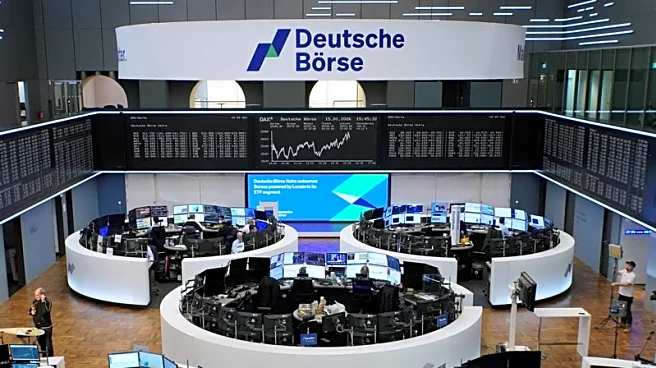What's Happening?
Beef + Lamb New Zealand (B+LNZ) and the Meat Industry Association have expressed approval of the New Zealand government's revised methane targets, which aim to better reflect scientific understanding of greenhouse gases. The new targets are designed to achieve no additional warming, aligning methane's expectations with those of other gases. B+LNZ Chair Kate Acland emphasized that while the sector has made progress in reducing emissions, the revised targets remain challenging. The removal of a price on agricultural emissions is seen as a relief for farmers, as previous pricing threats were considered unjustified. The government plans to review New Zealand's Nationally Determined Contribution under the Paris Agreement, potentially adopting a split-gas reporting approach.
Why It's Important?
The revised methane targets are significant for New Zealand's agricultural sector, which is a major contributor to the country's economy. By aligning targets with scientific principles, the government aims to balance emission reductions with food production needs. This approach may enhance international confidence in New Zealand's commitment to climate change mitigation. The removal of pricing on emissions could boost farmer confidence and encourage investment in sustainable practices. The potential adoption of split-gas reporting could set a precedent for other countries, influencing global climate policy.
What's Next?
The New Zealand government will continue to review its climate commitments, including the possibility of adopting split-gas reporting for international targets. This could lead to clearer guidelines for agricultural emissions and further investments in emission-reducing technologies. Stakeholders, including farmers and industry leaders, are likely to engage in discussions on practical policy and regulatory settings that support sustainable food production.
Beyond the Headlines
The decision to revise methane targets reflects a broader trend of integrating scientific research into policy-making. This approach may encourage other countries to reconsider their climate strategies, potentially leading to more effective global emissions reductions. The focus on methane, a potent greenhouse gas, highlights the importance of addressing short-lived climate pollutants in addition to long-lived gases like carbon dioxide.











